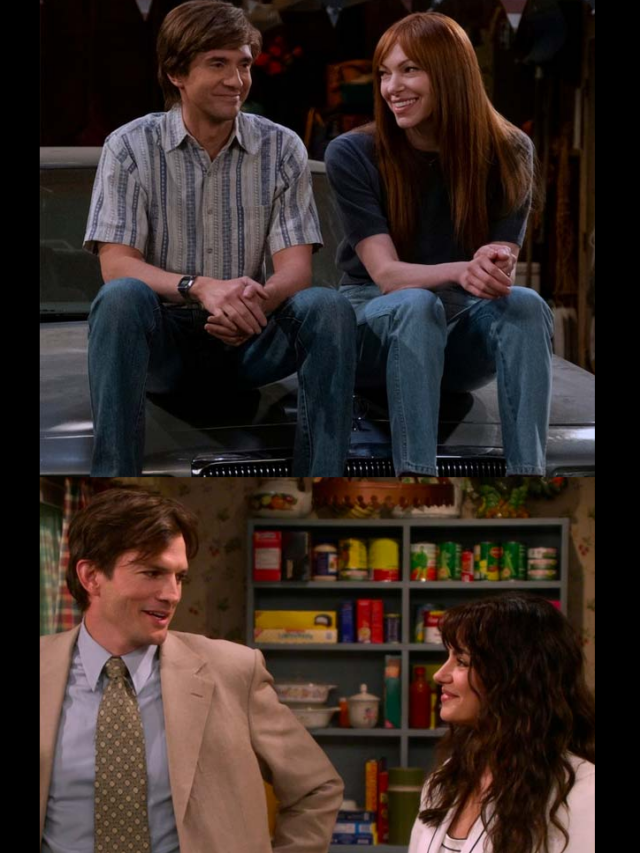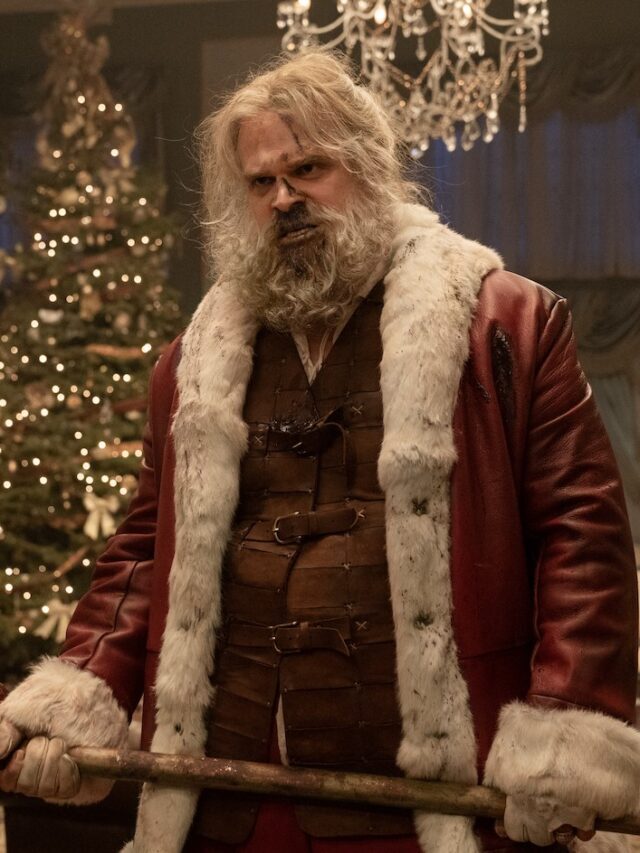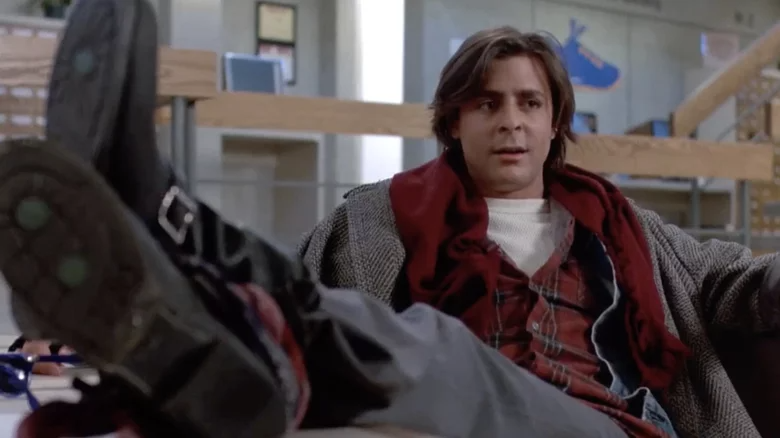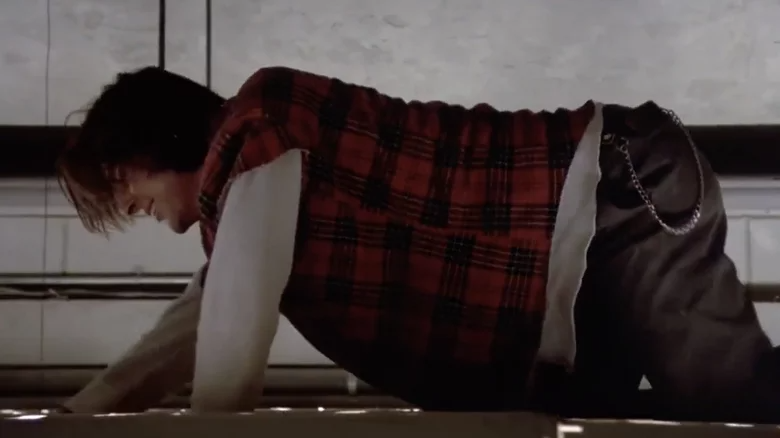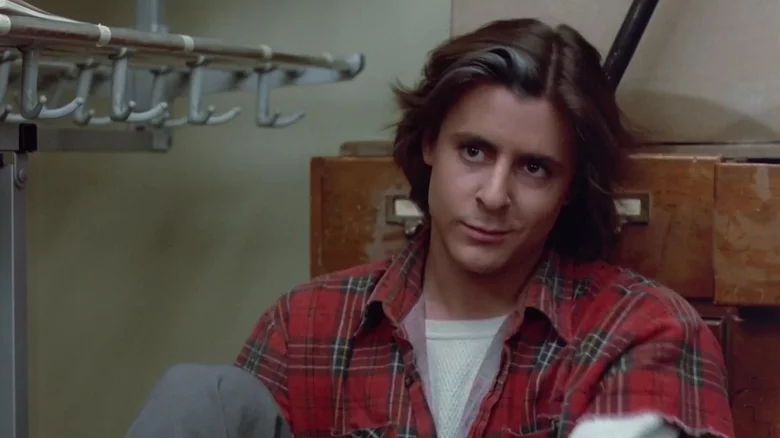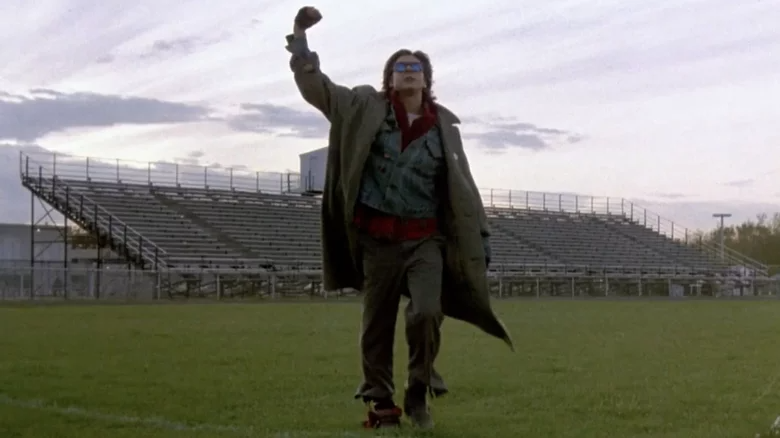Each of the five adolescents in “The Breakfast Club” represents a common high school stereotype: a princess, a criminal, an athlete, and a brain. They are forced to spend a long Saturday in detention together, when they discover that perhaps they aren’t so dissimilar after all.
It contains all the typical 1980s teen clichés that I love about John Hughes’ films, as well as John Bender.
One of my favourite bad boys is Bender. He appears to be a perfect fit for the criminal archetype at first impression. He strolls into the library full of sarcasm, arrogance, and self-destruction, unlike the other characters who seem completely out of place in detention. He sets out on a personal goal to enrage everyone around him in the harshest way imaginable from the very beginning of the movie. He excels at it as well.
As we discover more about Bender and his background, we start to understand why he acts in this way and how his tough demeanour serves as a coping strategy for his unfavourable home life. Underneath all the bluster, there is a lonely, wounded teen who is struggling to make the most of his circumstances.
Considering that Bender isn’t a good guy, he has a confusing personality. He repeatedly makes fun of Brian, the weak intellect, and sexually harasses Claire (Molly Ringwald), the school’s princess, while also threatening Andrew (Emilio Estevez), the jock, with a knife (Anthony Michael Hall). However, we still applaud when he wins the girl, and we grin at his victorious freeze-frame fist pump at the conclusion. We like him despite all of his defects, which are many.
Judd Nelson, the actor who played the part, wasn’t always everyone’s favourite in the backstage areas of the production, and his acting strategies nearly cost him his job when he went completely Bender.
Casting Bender in The Breakfast Club
“You Couldn’t Ignore me if You Tried,” by Susannah Gora Jackie Burch, who oversaw Bender’s casting, reflects on her challenges:
“I had met everyone in Los Angeles. I was aware that I needed to play the opposite of all those other youngsters for the role. He also needed to be a natural street kid, which is difficult to locate in Los Angeles and even in New York, as I discovered.”
Both John Cusack and Nicolas Cage gave auditions for the part, and Cusack was fervently interested. Burch, though, believed he was “completely unsuitable” for the role. A few years later, he would use a boombox to discover his vocation.
Nelson impressed Burch and director John Hughes during a prior reading for Bender in New York, so they invited him to L.A. for a second audition, according to Gora. Nelson dressed in a very similar clothing to the one we see in the movie this time since she had honed the character’s appearance. Nelson had adopted Bender’s hostile personality in addition to his angry appearance.
In Gora’s book, Nelson explains how he discovered Bender’s disposition just before his L.A. audition:
“I was waiting to enter the reading room in this tiny outside space. I was throwing a tennis ball against the wall while this [walkman] was blasting at its maximum volume. I felt a tap, and then I heard, “You’ve got to calm down,” from someone. I asked, “What?” I exclaimed, “WHAT?” when he said, “You’re throwing [that] ball too loud.” I then took a short stroll while smoking a cigarette.”
The actor was able to discover the rebellious attitude of the character thanks to this run-in with the law.
Nelson had already assumed the role of Bender by the time he was asked to read with the other actors. He entered the audition space, threw his Walkman on the ground, and turned the music up loud while reading for the part.
Ally Sheedy recalls her emotions as she observed Nelson’s audition:
“He [was] extraordinarily attractive, very graceful, and quite dark. Not only in the way he seemed, but also in the way he behaved… He truly had an effect on me. He [was] really erratic. He did not follow any of John’s instructions from the audition; instead, he developed his own riff. John enjoyed the fact that he was so erratic.”
Up until Nelson sneered at Molly Ringwald, Hughes’ inspiration.
‘Being bad feels pretty good’
Judd Nelson wasn’t at all like the bad boy Bender in reality. He was raised by two wealthy, Harvard-educated parents, attended a posh prep school, and majored in philosophy at Haverford College, one of the finest liberal arts universities in the country. He left Haverford to enrol full-time at The Stella Adler Conservatory, where he studied acting. Hughes would experience both blessings and curses from the techniques he acquired here.
Nelson took acting seriously and favoured the method style, in which actors never deviate from their characters during filming. As a result, while “The Breakfast Club” was being filmed, the affluent son of Harvard graduates turned into an uncontrollable bully. During Nelson’s audition, Hughes favoured this strategy, but became weary of the actor’s antics while filming.
Nelson frequently singled out Ringwald on set because she is the victim of Bender’s attacks throughout the entire film. Hughes and Ringwald had already collaborated on “Sixteen Candles” before “The Breakfast Club,” where they had a unique bond that would endure for years, so the director didn’t take kindly to Nelson’s mocking of Ringwald.
Unlike Hughes, Ringwald remembered Nelson’s treatment of her, but she didn’t take it personally:
“I don’t do method acting, but I could tell what [Nelson] was doing so plainly that I believe I was just rolling my eyes. John was genuinely upset by it. He took great care to keep me safe. He has never, ever appeared so furious to me. He was furiously angry.”
Hughes wanted to fire Nelson because he was so furious, but Ringwald and the other participants in the case persuaded Hughes otherwise:
“Everyone, including myself, sort of banded together and begged John not to fire him. Judd was exactly who I wanted in that role. Nobody else could have understood that area as well as he did.”
Nelson was retained in the part because Hughes listened to his cast.
Leader of the brat pack
When “The Breakfast Club” was released in 1985, it was generally well-received. Sure, some critics scoffed at Hughes’ overdramatization of juvenile angst, but others thought he nailed the disorienting and overwhelming feeling of puberty in a manner that earlier teen movies had failed to do. Although several reviews had negative opinions of the film, some well-known critics applauded Nelson’s performance.
Roger Ebert referred to Bender as “the strong heart of the film” in his review, and Gene Siskel praised Nelson for “successfully turning a boor into a tragic character.”
Hughes’ detractors might have been in the right. His movies definitely tend to be melodramatic, but many teenagers also do, which is probably why his characters seem so real. Hughes’ greatest talent was his ability to write in young adults’ voices and recognise when to pay attention to them.
Being a binge-watcher himself, finding Content to write about comes naturally to Divesh. From Anime to Trending Netflix Series and Celebrity News, he covers every detail and always find the right sources for his research.

